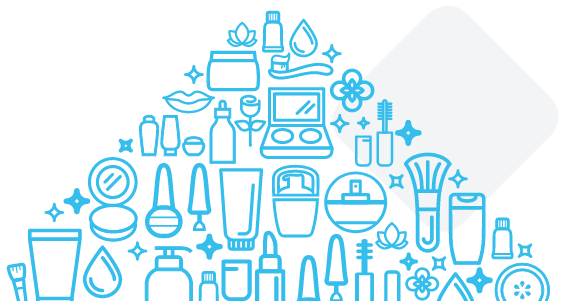Ingredient
DAIDZEIN
Name / description
Daidzein; 4',7-Dihydroxyisoflavone
Function(s) of this ingredient in cosmetic products
SKIN CONDITIONING - MISCELLANEOUS
Maintains the skin in good condition
Origin
plant (Information may exclusively reflect the status at initial entry of this ingredient into the relevant INCI dictionary; technological progress may have added new manufacturing options based on substances of different origin)
Information on safe use
This substance is expressly approved and / or subject to a restriction as a result of an entry in Annex III of the EC Cosmetics Regulation after an assessment by the Scientific Committee on Consumer Safety of the EU Commission (SCCS). Restrictions can relate eg to purity criteria, a maximum concentration or the restriction to certain product categories. Subject to the conditions possibly imposed in Annex III, the use of this substance in cosmetic products is safe.
Links to scientific assessments
Why are we talking about it?
Soya isoflavones are suspected of being endocrine disruptors. The facts: Isoflavones are naturally present in soya, red clover or kudzu root (a plant of Asian origin, used in traditional Chinese medicine). They are used in food supplements for pre-menopausal or menopausal women. The safety of intakes through food and food supplements has been assessed by the EFSA (European Food Safety Agency). It considers that intakes from food or food supplements are not a cause for concern (this applies to menopausal women with no current diagnosis or history of breast or uterine cancer) (1). Concerning their use in cosmetics, European experts have decided to re-examine the potential endocrine activity of 28 substances suspected of being endocrine disruptors; two isoflavones (daidzein and genistein) are part of this re-evaluation. According to these analyses, the currently available information is not sufficient to exclude a genotoxic potential of daidzein. However, the use of genistein in cosmetic products up to a maximum concentration of 0.007 % is safe (2). Key points to take away: As exposure to isoflavones through cosmetic products is very limited compared to intake through food or supplements, the use of genistein is considered safe. Sources: (1) European Food Safety Agency (EFSA): Risk assessment for peri- and post-menopausal women taking food supplements containing isolated isoflavones, 2015: https://efsa.onlinelibrary.wiley.com/doi/epdf/10.2903/j.efsa.2015.4246 (2) Scientific Committee on Consumer Safety: Opinion SCCS/1641/22
Belongs to the following substance groups
Regulating cosmetics
Cosmetics Ingredients are subject to regulation. Please note, different regulations may apply to cosmetic ingredients outside the EU.



